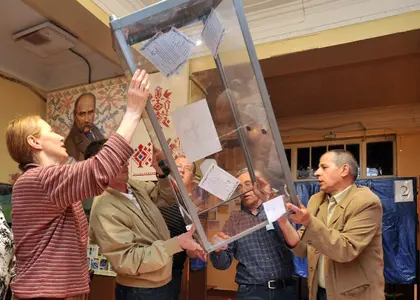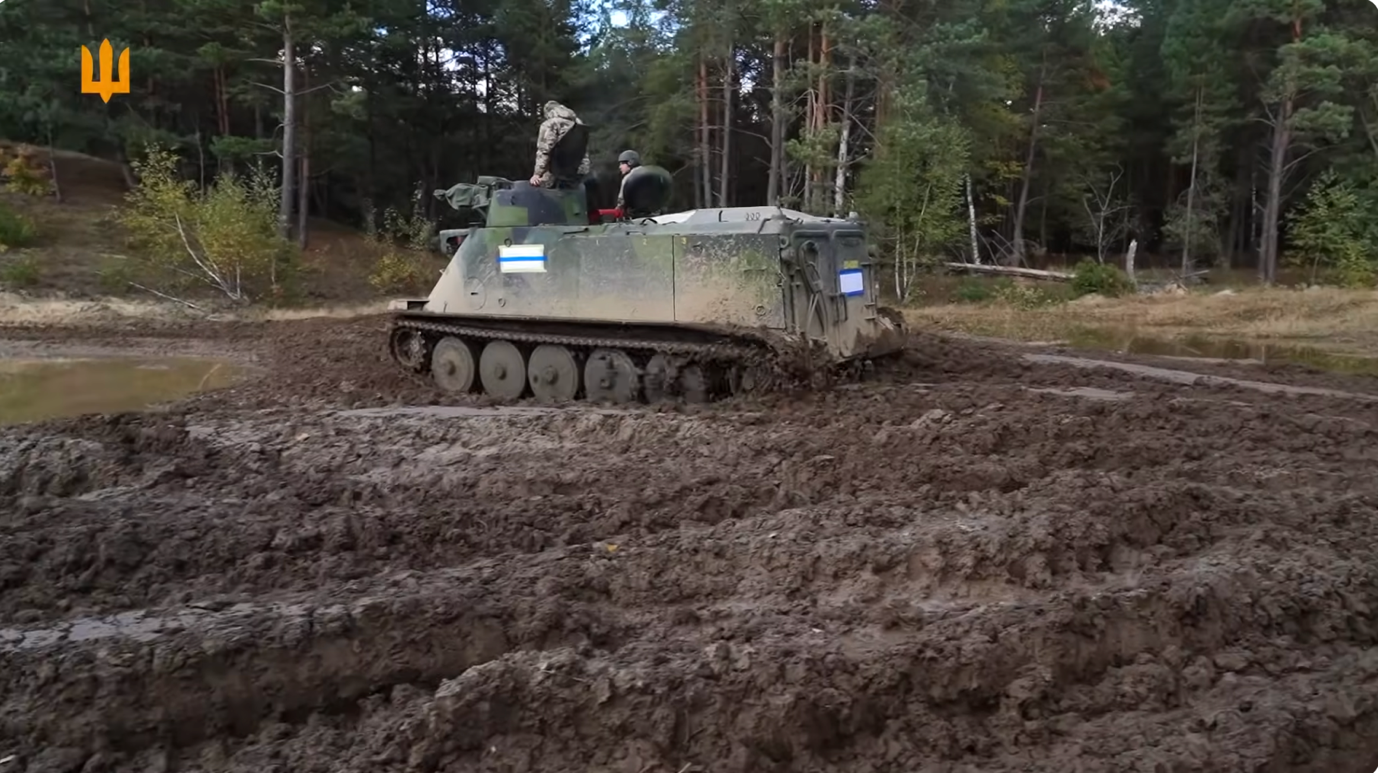Turchynov said that, according to Interior Ministry officials and experts observing the vote, ”only 24 percent of the population eligible to vote in Luhansk Oblast and just over 32 percent of the voting age population in Donetsk Oblast participated in the vote.”
The Russian government, on the other hand, noted the “high [voter] turnout.”
JOIN US ON TELEGRAM
Follow our coverage of the war on the @Kyivpost_official.
Though separatists have not yet announced the final tally, Luhansk election commission deputy chairman Oleksandr Malykhin told Interfax Ukraine that “judging by the tentative data, 95.98 percent have supported federalization of the Luhansk region.”
Meanwhile in Donetsk, the head of the Central Election Commission of the self-proclaimed Donetsk People’s Republic, Roman Lyagin, announced that nearly 90 percent of voters had supported secession.
The referendums were held after nearly six weeks of separatist violence in eastern Ukraine. Kremlin-backed rebels have occupied government buildings, seized television towers, set up checkpoints on roads throughout Donetsk and Luhansk oblasts, taken hostages, and called for closer association with Russia. In response, the Ukrainian government has conducted an anti-terrorist operation in several cities in Donetsk Oblast in an attempt to restore order.
No international election observers were present to monitor the voting on May 11. In their stead, journalists kept an eye on polling stations throughout eastern Ukraine.
Journalists’ reports recalled the sham elections of the Soviet Union: people were seen dropping multiple ballots into the ballot boxes, and voting in regions where they were not registered. The organization of this referendum was so last minute that in some cities, polling stations simply weren’t set up. In some polling stations, cardboard boxes were used instead of proper ballot boxes.
The U.S. State Department issued a statement on May 12 condemning the referenda in eastern Ukraine: “We’ve made clear, the referendums are illegal under Ukrainian law. Our view is that they’re an attempt to create further division and disorder in the country,” said Jan Psaki, a State Department spokesperson.”
Still, the Russian government is calling the vote legitimate.
On May 12, the Kremlin’s press service released a statement saying that “Moscow respects the will of the people in Donetsk and Lugansk and hopes that the practical realization of the outcome of the referendums will be carried out in a civilized manner, without resorting to violence, through dialogue between representatives of Kiev, Donetsk and Lugansk.”
At a televised joint press conference with the Ugandan Foreign Minister, Russian Foreign Minister Sergei Lavrov reiterated the Kremlin’s official statement, adding that rebels will need to be included in any future peace talks.
“I have heard statements by Ukraine’s acting Foreign Minister (Andriy) Deshchytsia and White House spokesman (Jay) Carney to the effect that the four-party format of the talks should be preserved (with Russia, the United States, the European Union and representatives of the Kiev regime), but I will say once again that without including the regime’s opponents into the direct dialogue over ways of settling the crisis, the efforts will go nowhere,” said Lavrov.
With support from Moscow, separatist leaders are beginning to hint at greater ambitions in eastern Ukraine.
Oleksiy Chmilenko, the leader of the Luhansk separatist group People’s Front, told Interfax Ukraine on Sunday that his rebels hope to “create a unified space, a united state with Donetsk and in the future probably with Dnipropetrovsk, Kharkiv, and other regions, which may follow our example.”
They may get support from local leaders, including Donetsk billionaire Rinat Akhmetov, Ukraine’s richest man.
Akhmetov’s Metinvest Group issued a statement on May 12 announcing the creation of a militia in Mariupol by metallurgical factory employees “in conjunction with municipal police.” Beginning on May 13, “these squads will begin patrolling the city to protect civilians from looters and criminals operating in the city.”
On May 12, Donetsk Governor Serhiy Taruta called on authorities in Kyiv to end the anti-terrorist operation in eastern Ukraine. “We want to drive out other defenders, but without arms, and accompanied by police,” Taruta said.
Kyiv Post staff writer Isaac Webb can be reached at [email protected] and on Twitter at @IsaacDWebb
You can also highlight the text and press Ctrl + Enter




